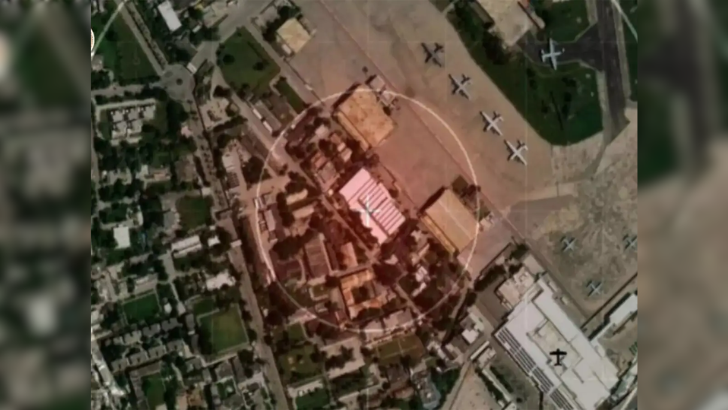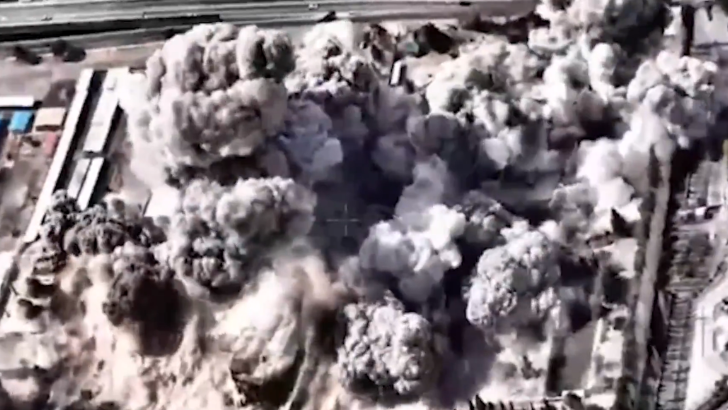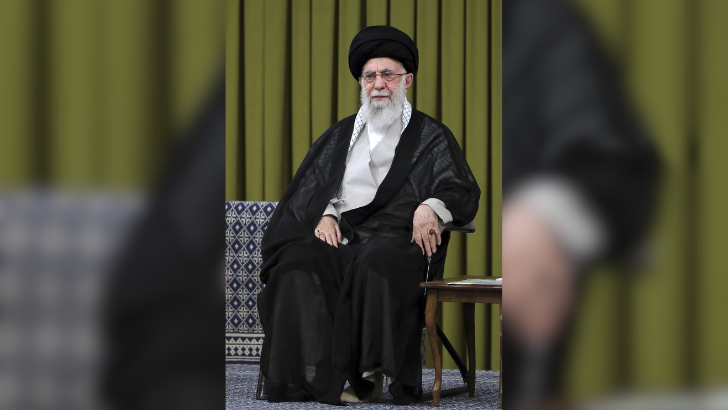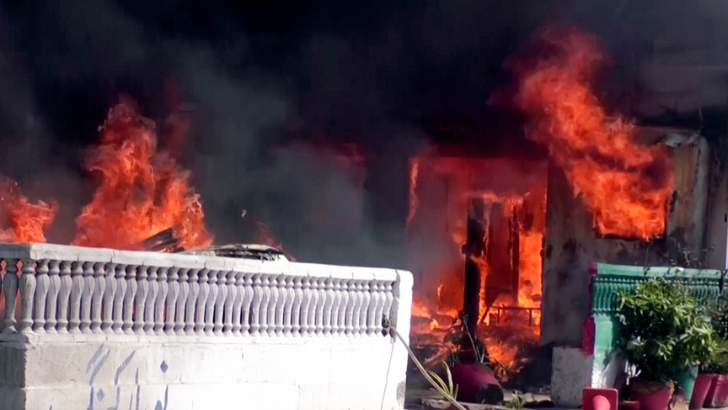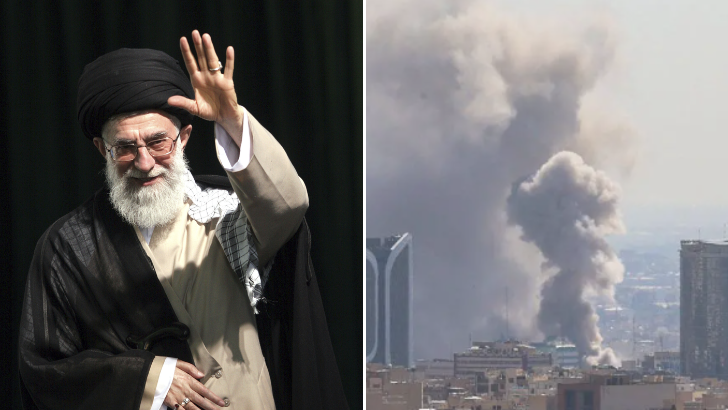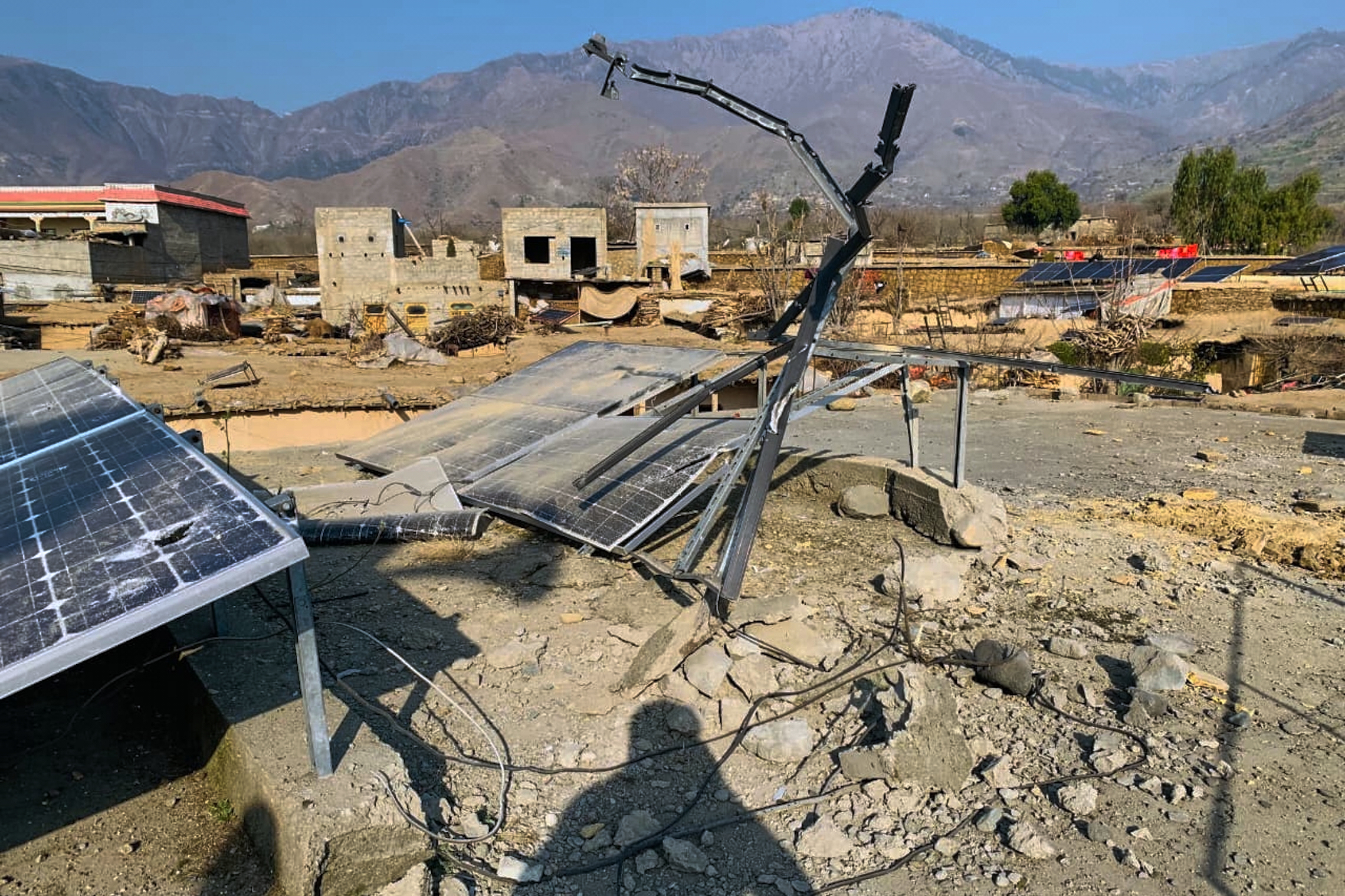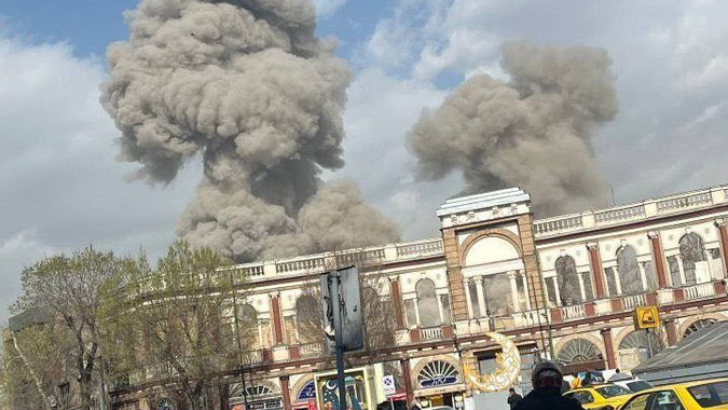Israeli forces seize Gaza side of Rafah border crossing
The development came after hours of whiplash in the Israel-Hamas war, with the militant group on Monday saying it accepted an Egyptian-Qatari mediated cease-fire proposal
AP
-
Smoke rises following an Israeli airstrike on buildings near the separating wall between Egypt and Rafah, southern Gaza Strip, on Monday. PHOTO: AP
Cairo, 7 May
An Israeli tank brigade seized
control on Tuesday of the Gaza Strip side of the Rafah border crossing with
Egypt as Israel moved forward with an offensive in the southern city even as
cease-fire negotiations with Hamas remain on a knife's edge.
The development came after hours of
whiplash in the Israel-Hamas war, with the militant group on Monday saying it
accepted an Egyptian-Qatari mediated cease-fire proposal. Israel, meanwhile,
insisted the deal did not meet its core demands.
The high-stakes diplomatic moves
and military brinkmanship left a glimmer of hope alive — if only barely — for
an accord that could bring at least a pause in the 7-month-old war that has
devastated the Gaza Strip.
The Israeli incursion overnight
appeared to be short of the full-fledged offensive into Rafah that Israel has
planned, and it was not immediately known if it would be expanded. President
Joe Biden on Monday urgently warned Israeli Prime Minister Benjamin Netanyahu
against launching an offensive on the southern Gaza city, hiking pressure for a
cease-fire.
Aid groups say an attack would be
catastrophic for the around 1.4 million Palestinians crammed into Rafah, most
of whom fled Israel's onslaught elsewhere in Gaza. The Israeli 401st Brigade entered the Rafah
crossing early on Tuesday morning, the Israeli military said, taking
“operational control” of the crucial border point. Footage released by the
Israeli military showed Israeli flags flying from tanks that seized the
crossing area. Details of the video matched known features of the crossing.
The military also carried out a
flurry of strikes and bombardment across Rafah overnight, killing at least 23
Palestinians, including at least six women and five children, according to
hospital records seen by The Associated Press.
The Rafah crossing is the main
route for aid entering the besieged enclave and exit for those able to flee
into Egypt. Both Rafah and the Kerem Shalom crossing between Israel and Gaza,
the other main aid entry point, have been closed for at least the past two
days. Though smaller entry points still operate, the closure is a blow to
efforts to maintain the flow of food, medicine and other supplies that are
keeping Gaza's population alive.
Jens Laerke, a spokesman for the UN
humanitarian affairs office, warned that an assault on Rafah could break the
fragile aid operation. He said all fuel entering Gaza comes through Rafah, and
any disruption will halt humanitarian work. “It will plunge this crisis into
unprecedented levels of need, including the very real possibility of a famine,”
he said.
The Israeli military claimed it
seized the crossing after receiving intelligence it was “being used for
terrorist purposes.” The military did not provide evidence to immediately
support the assertion, though it alleged the area around the crossing had been
used to launch a mortar attack that killed four Israeli troops and wounded
others near the Kerem Shalom crossing on Sunday.
The military also said that ground
troops and airstrikes targeted suspected Hamas positions in Rafah. Wael Abu
Omar, a spokesman for the Palestinian Crossings Authority, acknowledged Israeli
forces had seized the crossing and had closed the facility for the time being.
He said strikes had targeted the area around it since Monday.
An Egyptian Foreign Ministry
spokesperson declined to immediately comment on the Israeli seizure.
Egypt has previously warned that any seizure of Rafah — which is supposed to be part of a demilitarized border zone — or an attack that forces Palestinians to flee over the border into Egypt would threaten the 1979 peace treaty with Israel that's been a linchpin for regional security.
Israel's plans to attack Rafah have
also raised fears of a dramatic surge in civilian deaths in a campaign of
bombardments and offensives that has killed more than 34,700 Palestinians the
past seven months, according to Gaza health officials. The assault has leveled
large swaths of the territory, and northern Gaza has entered “full-blown
famine,” the head of the World Food Program, Cindy McCain, said Sunday.
Leave a Reply
Your email address will not be published. Required fields are marked *








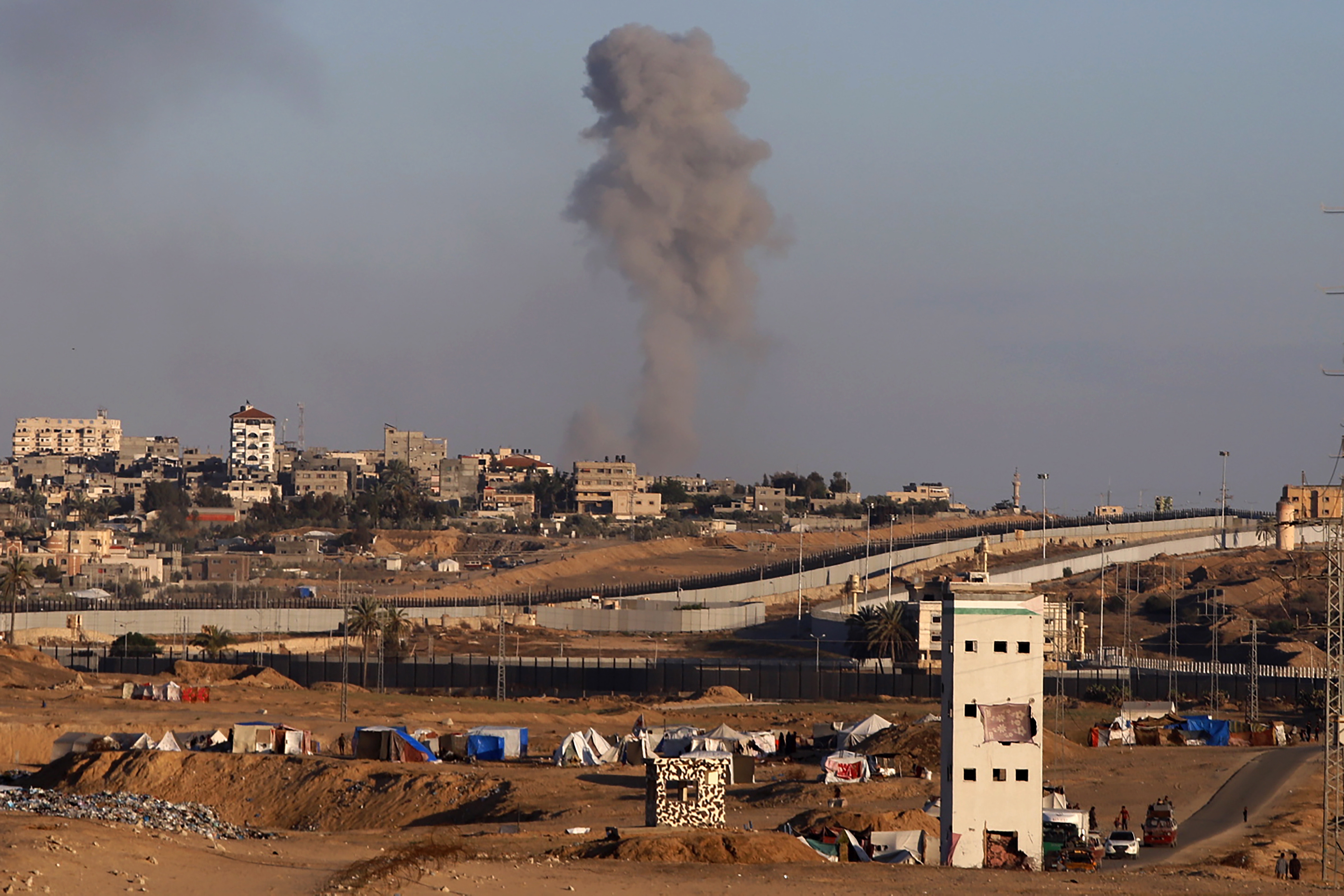

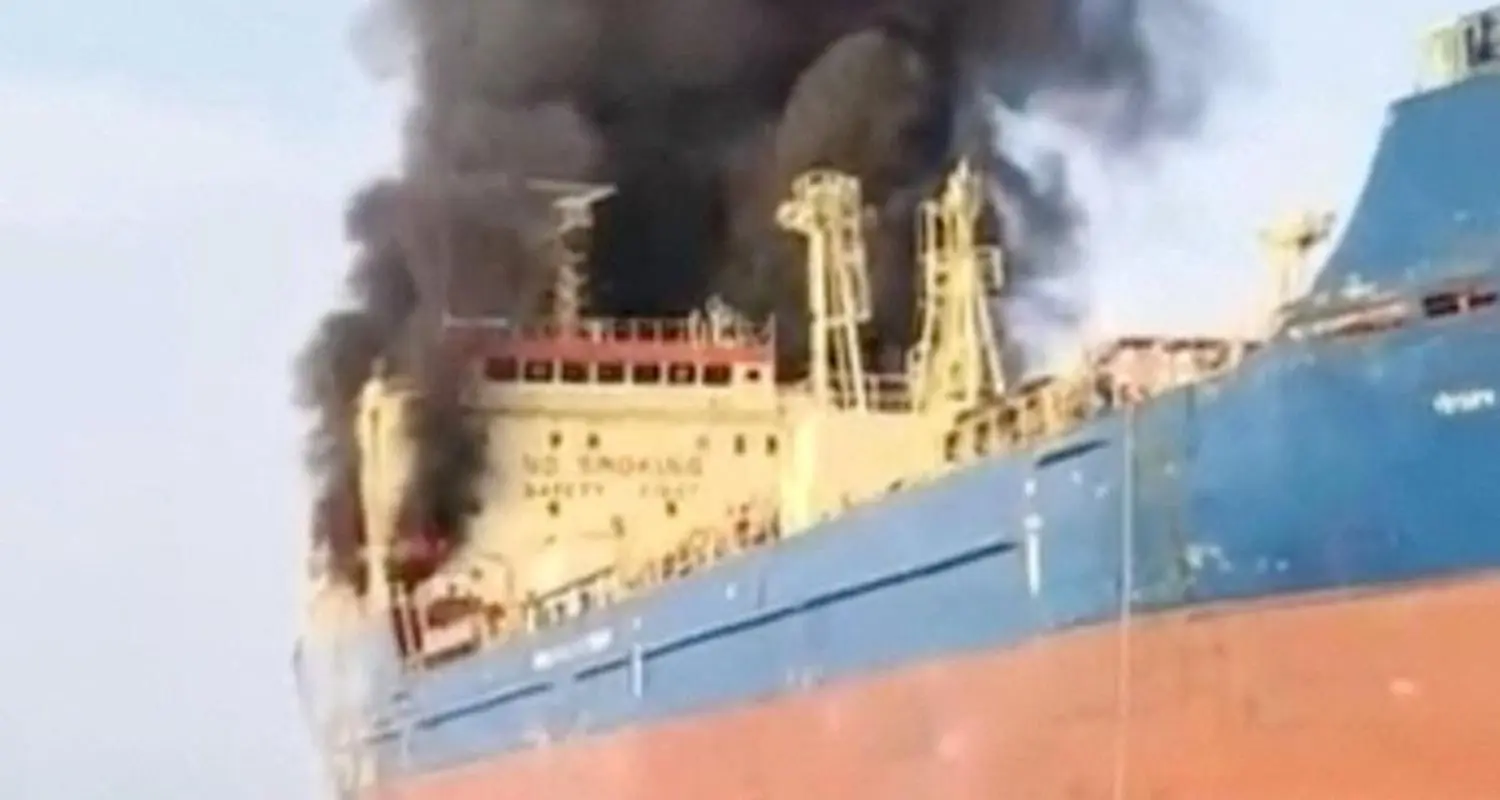
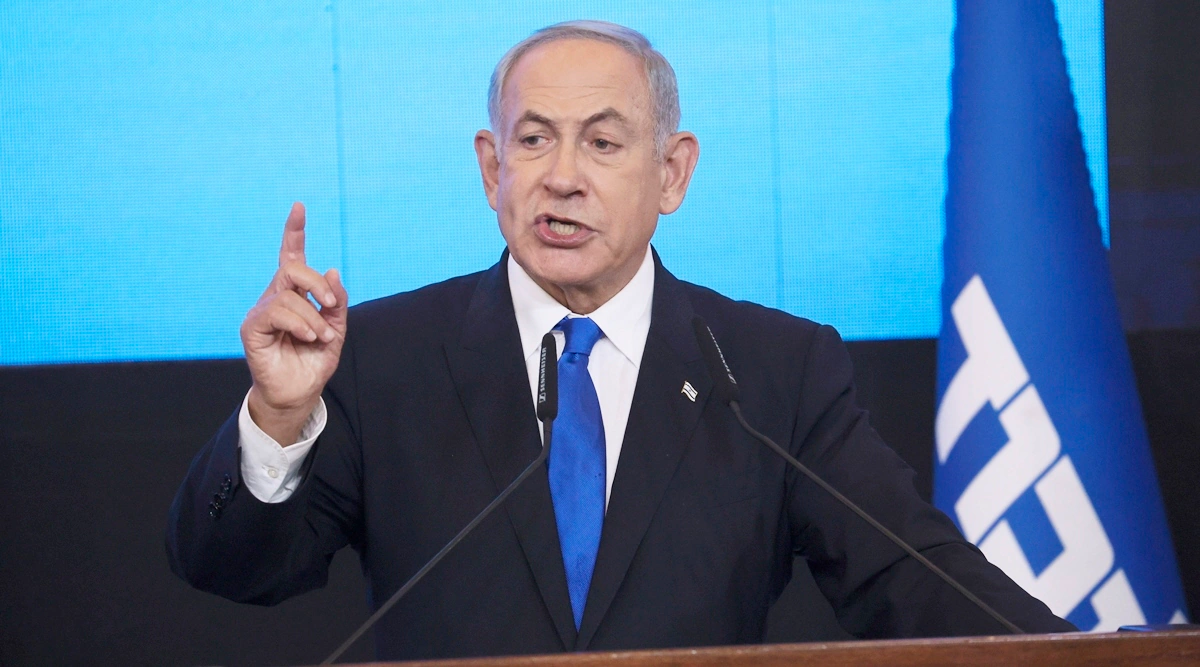
.jpg)
